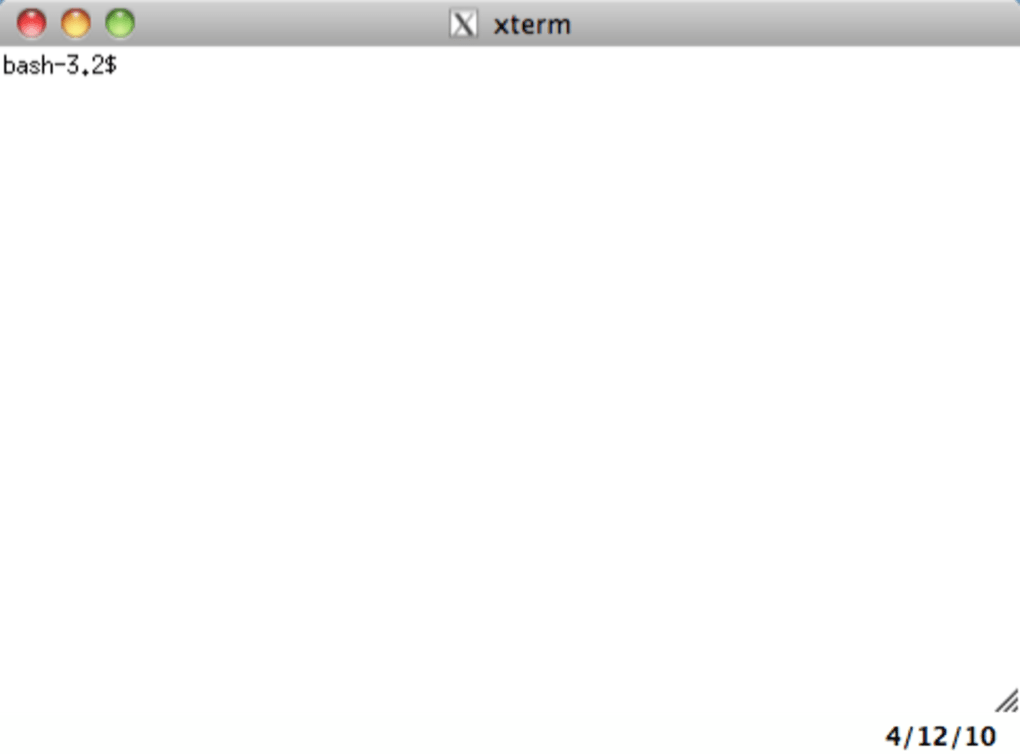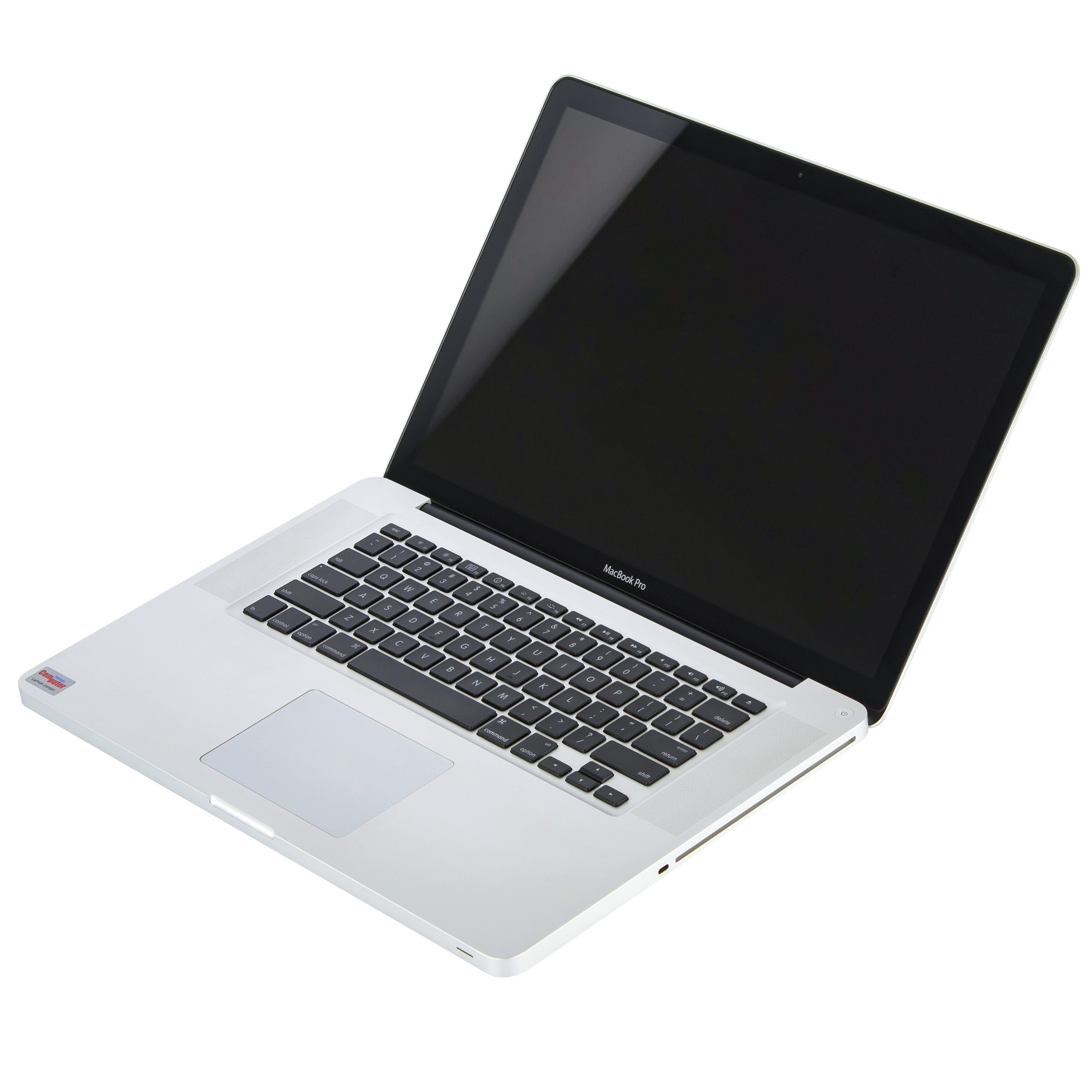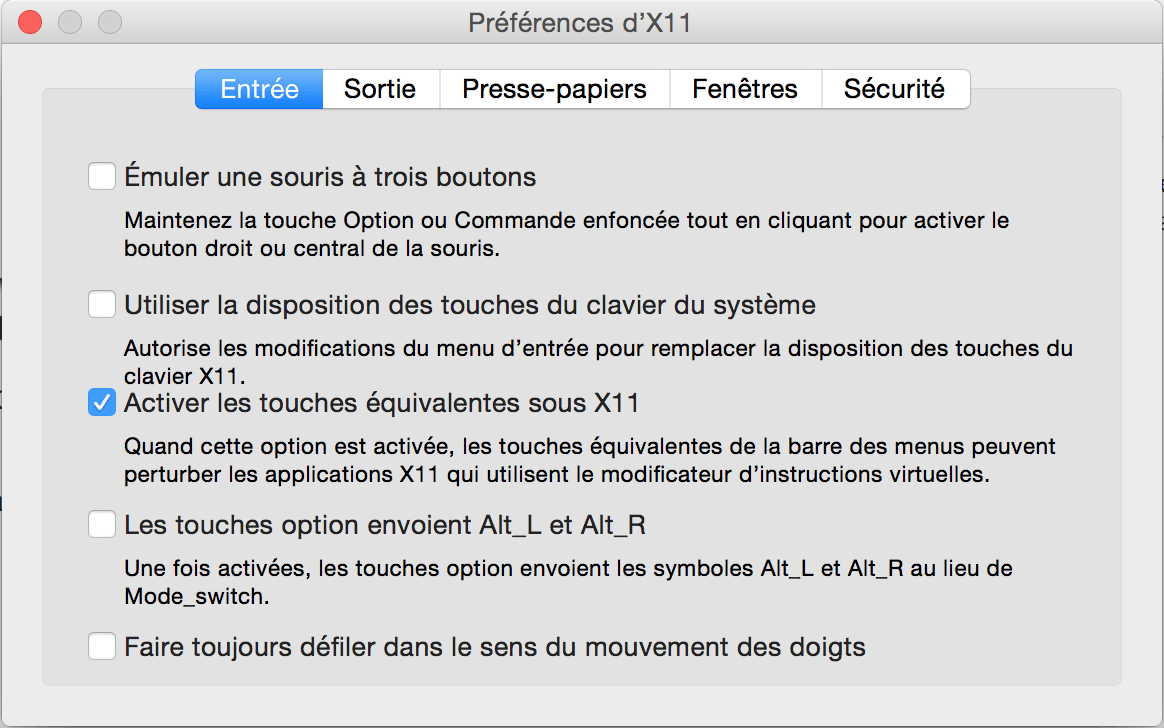
Mac OS X starting from Yosemite. In the last versions of Mac OS X (Yosemite, El Capitan), the X11 program is no longer included. The XQuartz project was created by Apple as a community effort to allow old programs (like Darwine) to run on Mac OS X by using the same X11 libraries. So, you just have to install XQuartz, and then you'll get the X11. Once installed, run this command from Terminal.app to install the latest X11 server on your system: $ sudo port -v install xorg-server If you want to try a development version of the server, use “xorg-server-devel” instead of “xorg-server” in the command above.
| Developer(s) | Jeremy Huddleston Sequoia, X.Org Foundation, Apple Inc. |
|---|---|
| Stable release | |
| Written in | C |
| Operating system | macOS |
| Type | Display server |
| License | Apple Public Source License MIT License |
| Website | www.xquartz.org |
XQuartz is an open-source version of the X.Org X server, a component of the X Window System (X11, or shortened to simply X, and sometimes informally X-Windows) that runs on macOS.[1] It formally replaced Apple's internal X11 app. The name 'XQuartz' derives from Quartz, part of the macOS Core Graphics framework, to which XQuartz connects these applications. XQuartz allows cross-platform applications using X11 for the GUI to run on macOS, many of which are not specifically designed for macOS. This includes numerous scientific and academic software projects.[2]
History[edit]
X11.app was initially available as a downloadable public beta for Mac OS X 10.2 Jaguar and later included as a standard package for Mac OS X 10.3 Panther. In Mac OS X 10.4 Tiger X11.app was an optional install included on the install DVD. Mac OS X 10.5 Leopard, Mac OS X 10.6 Snow Leopard, and Mac OS X 10.7 Lion installed X11.app by default, but from OS X 10.8 Mountain Lion on Apple dropped dedicated support for X11.app, with users being directed to the open source XQuartz project (to which Apple contributes) instead.[2]
In Mac OS X 10.4 Tiger, Apple's X11 implemented X11 protocol release 6.6 (X11R6.6). This implementation includes an XFree86 4.4 based X11 window server, Quartz rootless window manager, libraries, and basic utilities such as xterm.[3] 'Rootless' means that X window applications show up on the Quartz desktop, appearing like any other windowed Quartz application (that is, not in a virtual desktop contained within another window). In Mac OS X Leopard, X11 was updated to use X.Org Server (X11R7.2) rather than XFree86.[4] The source code for X11 is available from Apple. Some source code is available under the Apple Public Source License while the bulk is licensed under the MIT License.
Current version[edit]
The current version of XQuartz is a DDX (Device Dependent X[5]) included in the X.Org Server and implements support for hardware-accelerated 2D graphics (in versions prior to 2.1), hardware OpenGL acceleration and integration with Aqua, the macOS graphical user interface (GUI). As of version 2.8.0, XQuartz does not provide support for high-resolution Retina displays to X11 apps, which run in pixel-doubled mode on high-resolution displays.

List of versions (since 2010)[edit]
| Version[6] | macOS Requirement | Most important changes | Release date |
|---|---|---|---|
| XQuartz 2.8.0 | Mac OS X Mavericks 10.9 or later | Native support for Apple M1 Macs. | 2021-03-21 |
| XQuartz 2.7.11 | Mac OS X Snow Leopard 10.6.3 or later | 2016-10-29 | |
| XQuartz 2.7.10 | Mac OS X Snow Leopard 10.6.3 or later | 2016-10-22 | |
| XQuartz 2.7.9 | Mac OS X Snow Leopard 10.6.3 or later | 2016-05-05 | |
| XQuartz 2.7.8 | Mac OS X Snow Leopard 10.6.3 or later | First release supported on OS X El Capitan | 2015-10-17 |
| XQuartz 2.7.7 | Mac OS X Snow Leopard 10.6.3 or later | First release supported on OS X Yosemite | 2014-08-18 |
| XQuartz 2.7.6 | Mac OS X Snow Leopard 10.6.3 or later | 2014-05-17 | |
| XQuartz 2.7.5 | Mac OS X Snow Leopard 10.6.3 or later | First release supported on OS X Mavericks | 2013-11-10 |
| XQuartz 2.7.4 | Mac OS X Snow Leopard 10.6.3 or later | 2012-09-27 | |
| XQuartz 2.7.3 | Mac OS X Snow Leopard 10.6.3 or later | 2012-08-27 | |
| XQuartz 2.7.2 | Mac OS X Snow Leopard 10.6.3 or later | First release supported on OS X Mountain Lion | 2012-06-01 |
| XQuartz 2.7.1 | Mac OS X Snow Leopard 10.6.3 or later | 2012-06-01 | |
| XQuartz 2.7.0 | Mac OS X Snow Leopard 10.6.3 or later | First release supported on Mac OS X 10.7 Lion | 2011-11-04 |
| XQuartz 2.6.3 | Mac OS X Snow Leopard 10.6.3 or later | 2011-07-20 | |
| XQuartz 2.6.2 | Mac OS X Snow Leopard 10.6.3 or later | 2011-04-30 | |
| XQuartz 2.6.1 | Mac OS X Leopard 10.5.8, Mac OS X Snow Leopard 10.6.3, or later | 2011-03-17 | |
| XQuartz 2.6.0 | Mac OS X Leopard 10.5.8, Mac OS X Snow Leopard 10.6.3, or later | 2010-12-19 | |
| XQuartz 2.5.3 | Mac OS X Leopard 10.5.8, Mac OS X Snow Leopard 10.6.3, or later | 2010-08-13 | |
| XQuartz 2.5.2 | Mac OS X Leopard 10.5.8, Mac OS X Snow Leopard 10.6.3, or later | 2010-07-20 | |
| XQuartz 2.5.1 | Mac OS X Leopard 10.5.8, Mac OS X Snow Leopard 10.6.3, or later | 2010-07-10 | |
| XQuartz 2.5.0 | Mac OS X Leopard 10.5.8, Mac OS X Snow Leopard 10.6.3, or later | First release supported on Mac OS X Snow Leopard | 2010-03-29 |
See also[edit]
- MacX, X11 support on Classic Mac OS
- XWayland, to support X application under Wayland
- XDarwin, an implementation of X for macOS that preceded XQuartz, and supports versions of macOS before 10.3 unlike XQuartz
References[edit]
- ^'XQuartz'.
- ^ ab'Apple Removes X11 in OS X 10.8 Mountain Lion, Shifts Support to Open Source XQuartz'. Retrieved September 14, 2016.
- ^'XQuartz'. September 14, 2016.
- ^'Inside Leopard: Under-the-hood, Page 2'. Macworld. November 2, 2007. Retrieved June 30, 2020.
- ^'Glossary'. www.x.org. Retrieved September 15, 2016.
- ^'XQuartz - Releases Archive'. www.xquartz.org. Retrieved January 22, 2017.
External links[edit]

This directory contains binaries for a base distribution and packages to run on macOS. Releases for old Mac OS X systems (through Mac OS X 10.5) and PowerPC Macs can be found in the old directory.
Note: Although we take precautions when assembling binaries, please use the normal precautions with downloaded executables.

Package binaries for R versions older than 3.2.0 are only available from the CRAN archive so users of such versions should adjust the CRAN mirror setting (https://cran-archive.r-project.org) accordingly.
R 4.1.0 'Camp Pontanezen' released on 2021/05/19
X11 For Mac El Capitan Mac
Please check the SHA1 checksum of the downloaded image to ensure that it has not been tampered with or corrupted during the mirroring process. For example type
openssl sha1 R-4.1.0.pkg
in the Terminal application to print the SHA1 checksum for the R-4.1.0.pkg image. On Mac OS X 10.7 and later you can also validate the signature using
pkgutil --check-signature R-4.1.0.pkg
Latest release:
| R-4.1.0.pkg (notarized and signed) SHA1-hash: df4d6fc17bbf6b7a27d4e015c0084d4bb6f7b428 (ca. 87MB) | R 4.1.0 binary for macOS 10.13 (High Sierra) and higher, Intel 64-bit build, signed and notarized package. Contains R 4.1.0 framework, R.app GUI 1.76 in 64-bit for Intel Macs, Tcl/Tk 8.6.6 X11 libraries and Texinfo 6.7. The latter two components are optional and can be ommitted when choosing 'custom install', they are only needed if you want to use the tcltk R package or build package documentation from sources. Note: the use of X11 (including tcltk) requires XQuartz to be installed since it is no longer part of OS X. Always re-install XQuartz when upgrading your macOS to a new major version. This release supports Intel Macs, but it is also known to work using Rosetta2 on M1-based Macs. For native Apple silicon arm64 binary see below. Important: this release uses Xcode 12.4 and GNU Fortran 8.2. If you wish to compile R packages from sources, you may need to download GNU Fortran 8.2 - see the tools directory. |
| R-4.1.0-arm64.pkg (notarized and signed) SHA1-hash: 7354c1b249cab9bafea6ae67c73563303a05fa17 (ca. 88MB) | R 4.1.0 binary for macOS 11 (Big Sur) and higher, Apple silicon arm64 build, signed and notarized package. Contains R 4.1.0 framework, R.app GUI 1.76 for Apple silicon Macs (M1 and higher), Tcl/Tk 8.6.11 X11 libraries and Texinfo 6.7. Important: this version does NOT work on older Intel-based Macs. Note: the use of X11 (including tcltk) requires XQuartz. Always re-install XQuartz when upgrading your macOS to a new major version. This release uses Xcode 12.4 and experimental GNU Fortran 11 arm64 fork. If you wish to compile R packages from sources, you may need to download GNU Fortran for arm64 from https://mac.R-project.org/libs-arm64. Any external libraries and tools are expected to live in /opt/R/arm64 to not conflict with Intel-based software and this build will not use /usr/local to avoid such conflicts. |
| NEWS (for Mac GUI) | News features and changes in the R.app Mac GUI |
| Mac-GUI-1.76.tar.gz SHA1-hash: 304980f3dab7a111534daead997b8df594c60131 | Sources for the R.app GUI 1.76 for Mac OS X. This file is only needed if you want to join the development of the GUI (see also Mac-GUI repository), it is not intended for regular users. Read the INSTALL file for further instructions. |
Note: Previous R versions for El Capitan can be found in the el-capitan/base directory.Binaries for legacy OS X systems: | |
| R-3.6.3.nn.pkg (signed) SHA1-hash: c462c9b1f9b45d778f05b8d9aa25a9123b3557c4 (ca. 77MB) | R 3.6.3 binary for OS X 10.11 (El Capitan) and higher, signed package. Contains R 3.6.3 framework, R.app GUI 1.70 in 64-bit for Intel Macs, Tcl/Tk 8.6.6 X11 libraries and Texinfo 5.2. The latter two components are optional and can be ommitted when choosing 'custom install', they are only needed if you want to use the tcltk R package or build package documentation from sources. |
| R-3.3.3.pkg MD5-hash: 893ba010f303e666e19f86e4800f1fbf SHA1-hash: 5ae71b000b15805f95f38c08c45972d51ce3d027 (ca. 71MB) | R 3.3.3 binary for Mac OS X 10.9 (Mavericks) and higher, signed package. Contains R 3.3.3 framework, R.app GUI 1.69 in 64-bit for Intel Macs, Tcl/Tk 8.6.0 X11 libraries and Texinfo 5.2. The latter two components are optional and can be ommitted when choosing 'custom install', it is only needed if you want to use the tcltk R package or build package documentation from sources. Note: the use of X11 (including tcltk) requires XQuartz to be installed since it is no longer part of OS X. Always re-install XQuartz when upgrading your OS X to a new major version. |
| R-3.2.1-snowleopard.pkg MD5-hash: 58fe9d01314d9cb75ff80ccfb914fd65 SHA1-hash: be6e91db12bac22a324f0cb51c7efa9063ece0d0 (ca. 68MB) | R 3.2.1 legacy binary for Mac OS X 10.6 (Snow Leopard) - 10.8 (Mountain Lion), signed package. Contains R 3.2.1 framework, R.app GUI 1.66 in 64-bit for Intel Macs. This package contains the R framework, 64-bit GUI (R.app), Tcl/Tk 8.6.0 X11 libraries and Texinfop 5.2. GNU Fortran is NOT included (needed if you want to compile packages from sources that contain FORTRAN code) please see the tools directory. NOTE: the binary support for OS X before Mavericks is being phased out, we do not expect further releases! |

Subdirectories:
| tools | Additional tools necessary for building R for Mac OS X: Universal GNU Fortran compiler for Mac OS X (see R for Mac tools page for details). |
| base | Binaries of R builds for macOS 10.13 or higher (High Sierra), Intel build |
| contrib | Binaries of package builds for macOS 10.13 or higher (High Sierra), Intel build |
| big-sur-arm64 | Binaries for macOS 11 or higher (Big Sur) for arm64-based Macs (aka Apple silicon such as the M1 chip) |
| el-capitan | Binaries of package builds for OS X 10.11 or higher (El Capitan build) |
| mavericks | Binaries of package builds for Mac OS X 10.9 or higher (Mavericks build) |
| old | Previously released R versions for Mac OS X |
You may also want to read the R FAQ and R for Mac OS X FAQ. For discussion of Mac-related topics and reporting Mac-specific bugs, please use the R-SIG-Mac mailing list.
Information, tools and most recent daily builds of the R GUI, R-patched and R-devel can be found at http://mac.R-project.org/. Please visit that page especially during beta stages to help us test the Mac OS X binaries before final release!
Package maintainers should visit CRAN check summary page to see whether their package is compatible with the current build of R for macOS.
Binary libraries for dependencies not present here are available from http://mac.R-project.org/libs and corresponding sources at http://mac.R-project.org/src.
Mac El Capitan Download
Last modified: 2021/05/20, by Simon Urbanek